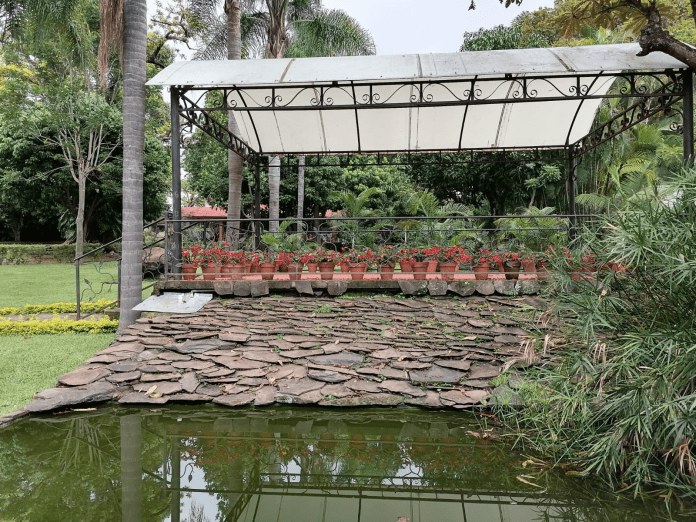In recent days I was in Ziracuaretiro, a place that is between Pátzcuaro and Uruapan, and that practically has the XXI century track on one side; said privileged place for its climate, water, soil and its people: generous, hard-working and committed to their environment. I had already been on this site on several occasions giving conferences, workshops, talks, joint actions with the different municipalities that invited me as an activist or official. Whenever I was there I was treated with affection, respect and generosity; Ziracuaretiro for me, is spirituality and love.
On different occasions I have visited the fruit orchards, the anthurium nurseries, but I have also tasted its gastronomy in different places; however, ‘Doña Blanca’s table’ is a space where values, principles and social virtues come together, I say this because it is a space in which human beings and nature are unique, but also the reality of what is possible, that is to say, the reality when tasting traditional food.
In this space, values such as equality and non-discrimination and an inclusive and accessible language are privileged, because the conditions exist so that people with disabilities can have access to a place that is not flat, but has different terraces for which there are to go up and down stairs, despite this, people with disabilities can visit the place and of course enjoy it.
The place with more than three decades of careful and fine construction processes that has managed to generate the most respectful and friendly site with nature; it gives us various views to perform aesthetic exercises, to do yoga, to take deep breaths, to meditate, or simply enjoy life in coexistence with water, air, earth and sun.
When people enter this space, a short distance from the downtown area of Tziracuaretiro, they generate unity between the living being and nature, they engage in symbiosophy (the wisdom of learning to grow together. An indispensable wisdom for survival in a world whose crisis is based on our difficulty in assimilating its immense complexity), I say this because you can breathe pure air, sunbathe, which is energy, and drink water to hydrate the body, food of mother earth finely cared for the preparation of traditional gastronomy and above all to be able to converse in friendly company with great human beings, and human beings who give us a great lesson in love for otherness, respect in the exercise of good living (the Good living implies a relationship with nature such that the well-being of people and the survival of plants, animals, that is, the ecosystems, are simultaneously ensured.) that five hundred years ago the Mesoamerican peoples maintained, and whose spirituality was based on respect for the elements of nature.
What you breathe there from the moment you arrive at the space is a permanent tranquility, the sound of the water, the wind that runs through the body of the attendees, the sound of the birds and only this tranquility is interrupted when we manage to hear the smiles that they express walkers to live and feel with satisfaction said site.
I had the opportunity to live with Mrs. Blanca Vidales; a tall person, with a confident walk, a spontaneous smile, a great capacity for dialogue, eloquent, who shared with us various stories about his experiences of his adolescence in the region that integrates Uruapan, Taretan, Tziracuaretiro and of course Morelia, in his reflection he achieves intertwine their narratives without neglecting attention; she is permanently attending to all the smallest details, as a hostess does, to make her visitors feel at home.
The conversation where Pedro Armando Cantú and Luis Montejano, my friends and companions, were, caught our attention by their comments on various anecdotes, but the most beautiful thing was their love as a couple, how they met their husband, how they lived and how they built the orchard in which the place of the Mesa de doña Blanca is located; that same place where they engraved her and her husband’s initials in a heart on a small Ziranda tree, which now stands majestic, splendid and whom they have respected by giving it priority so that it can extend its generous exterior roots and continue growing and giving shelter to birds, shade to people, generator of oxygen, water and aesthetic beauty.
Listen to the narratives of Taretan, about the agricultural and livestock dynamics of those places and how the economy and the local market were generated; think about the learning and knowledge of his mother and the caporal’s wife to teach her how to cook everything related to milk, cheese, chongos, cream, butter, jocoque, and the preparation of delicious cakes prepared with recipes traditions whose knowledge has passed from generation to generation.
His time at the high school in Uruapan, and his great commitment to advance in respect for the environment; and today she is already a mature, wise woman, stepping on international stages to share her knowledge at Casa México in Madrid, Spain, where she lectured on pre-Hispanic food, with other great chefs; she has followed in the footsteps of great masters of the kitchen, such as Diana Kennedy who recently passed away and was an icon of Mexican gastronomy for the world, she was of British origin, or like Cristina Potter, whose gastronomic content of Mexico is found on the internet, and to whom I send a greeting with affection and respect.
Much to talk about, much to admire. It will always be a pleasure for me to share this type of informal talks, which build the life of yesteryear, which gives meaning to our current life.
LET’S DEBATE MICHOACÁN: The heart in the Ziranda – Cambio de Michoacán

